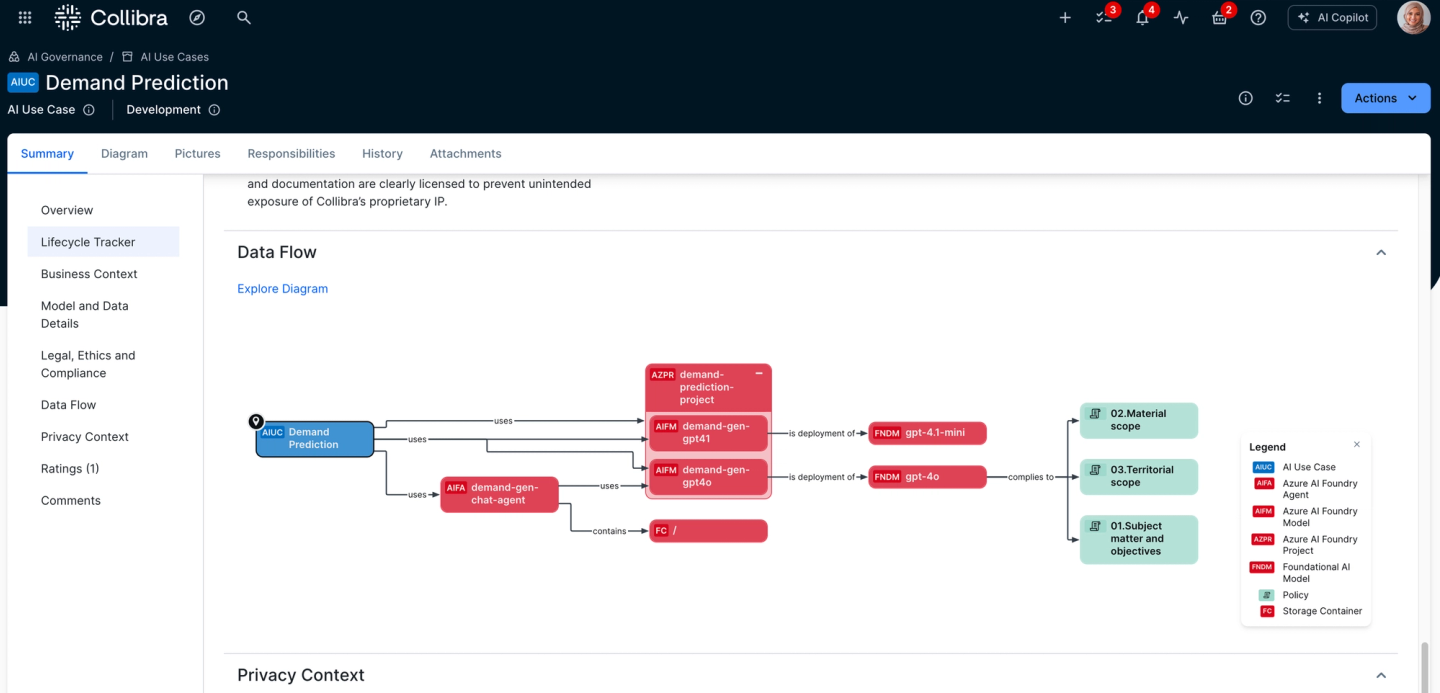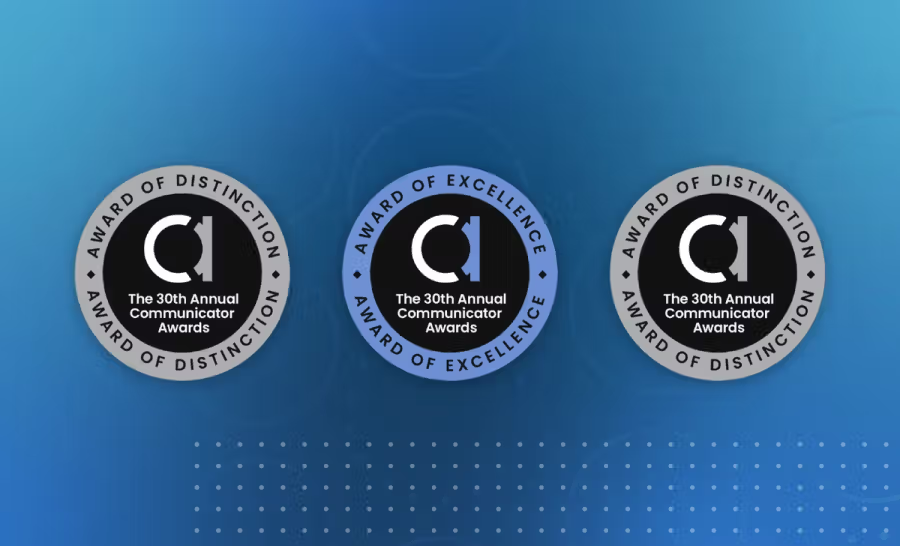Automated traceability for Azure AI Foundry: From data to use cases

As AI systems grow more complex, the ability to connect data, models and use cases has become essential. Without traceability, organizations face major risks: audit gaps, reliance on outdated data and compliance failures. Yet most links between datasets, models and use cases are still maintained manually, leading to inefficiency and governance blind spots. Collibra now introduces automated traceability for Azure AI Foundry (Preview)—ensuring every AI use case is connected to their models, data and agents.
What’s new: Automated traceability
Collibra’s new automated traceability capability enables organizations to automatically stitch together relationships between AI assets: datasets, deployment models, foundational models, agents and use cases within Azure AI Foundry.
Instead of relying on manual mapping, Collibra automates lineage creation during ingestion. This ensures every AI use case and model is directly tied to its originating data. Notifications, lifecycle tracking and suggested dataset matching further enhance governance, reducing risk and saving time.
With this preview, organizations can validate traceability in a single environment—Azure AI Foundry—before broader availability in future releases.
How automated traceability helps
AI leaders struggle with compliance and trust when they can’t verify and trace back which data drives models or use cases. Manual mapping is slow and prone to error, leaving organizations exposed to regulatory and operational risks.
AI systems are rapidly increasing in complexity, making it challenging to establish clear connections between data, models and their resulting use cases. Traditionally, this critical task of tracing the lineage of AI assets has been a manual, time-consuming and error-prone process. This manual effort often leads to significant bottlenecks, resulting in incomplete traceability, hindering auditability, weakening governance and preventing AI teams from scaling their initiatives. Collibra's new automated traceability for Azure AI Foundry addresses these challenges by automating the connections across the AI lifecycle. It solves for problems such as:
- Manual and inconsistent linking between models, data and use cases
- Lack of auditability across AI lifecycle assets
- Risk of unapproved or outdated datasets being used in production
- Inability to perform fast impact analysis for regulatory frameworks like the EU AI Act
- Delayed validation when models or agents are deployed without traceability
How automated traceability works
Automated traceability leverages ingestion logic and Azure project IDs to create end-to-end relationships between assets:
- AI use case to model stitching: Deployment models are automatically linked to their use cases at ingestion, ensuring traceability without manual mapping
- Foundational model to deployment model: Foundational models are stitched to their downstream deployments, documenting clear lineage and origin
- Model-to-data connection: Azure data files (with tags, owner, metadata) are automatically connected to deployed models, enabling reproducibility and trust

Automated traceability for Azure AI Foundry: From data to use cases
Why you should be excited
The benefits of automated traceability extend across a wide range of roles:
- Data Scientists: Save time with automated lineage and dataset suggestions, reducing manual mapping
- AI Leads: Gain confidence in auditability and compliance by seeing which data drives which models
- Compliance Officers: Perform impact analysis quickly for privacy, legal and regulatory reviews
- Business Owners: Trust that AI use cases are built on approved, traceable data sources
Key use cases
Along with helping numerous personas across the organization, automated traceability also supports various use cases across industries:
- Enable financial services teams to automatically connect fraud detection use cases in Azure AI Foundry to their underlying deployed models and datasets
- Ensure healthcare AI models are stitched to foundational models for regulatory oversight
- Enable retail agents to trace pricing recommendations back to approved datasets for compliance validation
Key takeaways about automated traceability
Automated traceability is now available in Preview for Azure AI Foundry, enabling organizations to establish reliable lineage between data, models, agents and use cases. By removing manual mapping, it reduces risk, accelerates validation and strengthens compliance. Learnings from this preview will inform broader integrations in upcoming releases.
Join Collibra’s Product Premiere to learn:
- How traceability is automated within Azure AI Foundry
- How models, data and use cases are linked without manual effort
- How notifications and dataset suggestions enhance governance
Related articles

AIMay 21, 2024
Collibra wins prestigious 2024 Communicator Award for AI Governance campaign

AIJuly 15, 2024
How to observe data quality for better, more reliable AI

AINovember 13, 2023
AI ethics and governance: responsibly managing innovation

AI GovernanceFebruary 28, 2025
AI agents: Build or buy, governance remains critical
Keep up with the latest from Collibra
I would like to get updates about the latest Collibra content, events and more.
Thanks for signing up
You'll begin receiving educational materials and invitations to network with our community soon.


